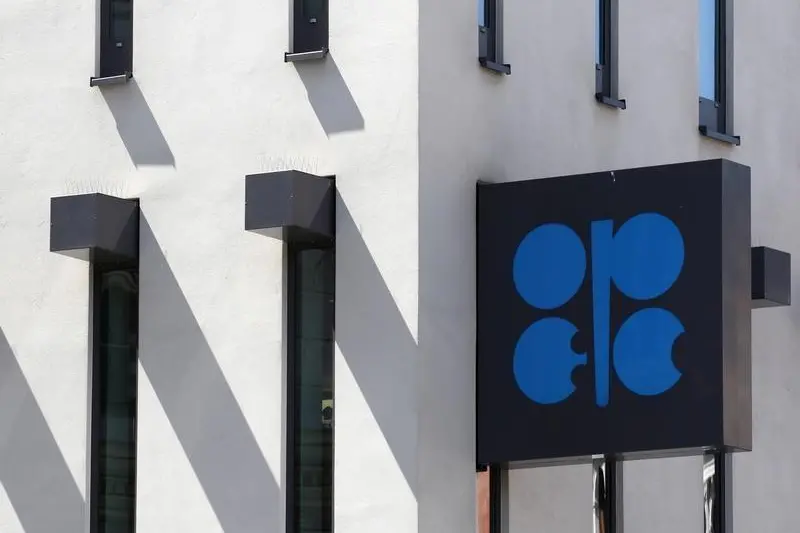PHOTO
SINGAPORE: Oil prices jumped about $5 a barrel on Monday's open, jolted by a surprise announcement by OPEC+ to cut production further in an effort to support market stability.
Brent crude hit the highest in nearly a month at the open, trading at $84.95 a barrel by 0039 GMT, up $5.06, or 6.3%.
U.S. West Texas Intermediate crude touched its highest since late January and was at $80.47 a barrel, up $4.80, or 6.3%.
The Organization of the Petroleum Exporting Countries and their allies including Russia, shook markets by announcing production cuts of about 1.16 million barrels per day on Sunday.
The group known as OPEC+ had been expected to maintain its earlier decision to cut output by 2 million bpd until December at its monthly meeting on Monday.
The pledges bring the total volume of cuts by OPEC+ to 3.66 million bpd according to Reuters calculations, equal to 3.7% of global demand.
As a result, Goldman Sachs lowered its end-2023 production forecast for OPEC+ by 1.1 million bpd and raised their Brent price forecasts to $95 and $100 a barrel in 2023 and 2024, respectively, its analysts said in a note.
"Today’s surprise cut is consistent with the new OPEC+ doctrine to act pre-emptively because they can without significant losses in market share," the bank said.
"The risks around cutting production have become asymmetric given how short positioning has become, and because price increases in response to tightening events can be stronger when the market is short."
Goldman estimated the output reduction could provide a 7% boost to oil prices, contributing to higher Saudi and OPEC+ oil revenues.
The Biden administration said it saw the move announced by the producers as unwise.
Last month, Brent fell towards $70 a barrel, the lowest in 15 months, on concern that a global banking crisis and rising interest rates would hit demand despite lower OPEC oil output in March due to oilfield maintenance in Angola and a halt in some of Iraq's exports.
"Today’s move, like the October cut, can be read as another clear signal that Saudi Arabia and its OPEC partners will seek to short circuit further macro sell-offs and that Jay (Jerome) Powell is not the only central banker that matters," RBC Capital analyst Helima Croft said.
"The bottom line is Washington and Riyadh simply have different price targets for their key policy initiatives."
Analysts at the National Australia Bank said the OPEC+ production cuts and demand recovery from top crude importer China could drive oil prices above $100 a barrel through third quarter.
"Despite the latest cuts to production Saudi Arabia retains significant headroom above its historical production lows to cut global supply further if required to support market balances and prices from here," they added.
Meanwhile, U.S. crude production rose in January to 12.46 million barrels per day (bpd), the highest since March 2020, Energy Information Administration (EIA) data showed on Friday. (Reporting by Florence Tan; Editing by Lincoln Feast)





















